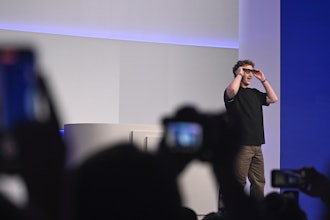LANSING, Mich. (AP) — Michigan lawmakers immediately tackled major components of their postelection agenda Thursday, passing a long-debated update to energy laws and finalizing legislation designed to keep the U.S. auto industry's home state ahead of the curve on driverless vehicles.
The Legislature overwhelmingly voted to no longer require that someone be inside a self-driving car while testing it on public roads. The expansive bills, which Republican Gov. Rick Snyder is expected to sign, would make Michigan a rare state to explicitly end a requirement that a researcher be present inside an autonomous test vehicle. The researcher would have to "promptly" take control of its movements remotely if necessary, or the vehicle would have to be able to stop or slow on its own.
Supporters said the human operator requirement is seen as an impediment that could put Michigan at risk of losing research and development to other states.
"This comes down to public safety," said Republican Rep. Brandt Iden of Oshtemo. "By replacing human drivers with autonomous operating technology, we can greatly reduce the number of fatal accidents, which is a win-win for us all."
Other provisions would allow for public operation of driverless vehicles when they are sold and ease the "platooning" of autonomous commercial trucks traveling closely together at electronically coordinated speeds. The legislation would help create a facility to test autonomous and wirelessly connected cars at highway speeds at the site of a defunct General Motors plant that once churned out World War II bombers. Also, auto manufacturers would be authorized to run networks of on-demand self-driving vehicles.
Michigan is among eight states with laws related to autonomous cars, while Arizona's governor has issued an executive order, according to the National Conference of State Legislatures.
Also Thursday, the GOP-controlled Senate passed revisions to 2008 energy laws on 26-10 and 26-11 votes, with some Republicans in opposition.
Under current law, electric providers have to produce 10 percent of their power from renewable sources. The bills would raise the minimum to 15 percent by the end of 2021 and set a non-binding goal of meeting 35 percent of Michigan's electricity needs by 2025 through a combination of renewable energy and energy conservation.
Utilities would be required to submit a long-term plan to state regulators for review of how they will meet demand. DTE Energy, Consumers Energy and smaller utilities would continue to be guaranteed 90 percent of power sales in their regions while competitors could keep up to 10 percent of the market — though critics, including some conservative advocacy groups and big companies such as U.S. Steel, said "choice" would effectively be killed.
"Ratepayers have kind of been left beside, alone," said GOP Sen. Mike Shirkey of Clarklake, who voted against the utility-backed bills.
But one of the Republican sponsors, Senate Energy and Technology Committee Chairman Mike Nofs of Battle Creek, denied the charge and said utility competitors should show three years in advance that they have enough capacity.
"This legislation is not about what's best for a few companies, organizations, or individuals — it's about what's best for the entire state of Michigan," he said.
The debate will move to the House after legislators return from a two-week break for hunting and Thanksgiving.
In the House, Republicans — who held their 63-47 majority in Tuesday's election — also elected a new leadership team for the 2017-18 session. The next speaker will be Rep. Tom Leonard of DeWitt.
The 35-year-old, who chairs the House Insurance Committee and was a prosecutor before joining the Legislature, said three priorities are reforming the mental health system, boosting job opportunities in the skilled trades and addressing pension liabilities. He said the Michigan Public School Employees Retirement System is "broken" and legislators should consider moving newly hired teachers into 401(k) plans instead of also giving them a pension in retirement.
House Democrats also selected new leadership. Rep. Sam Singh of East Lansing will become the minority leader in January after Rep. Tim Greimel of Auburn Hills decided to not run again because Democrats, who were expected to bolster their ranks in the election, failed to do so.
The 45-year-old Singh said Democrats will focus on education spending and the economy, which "is not working for everybody. This Legislature, this governor has left a lot of people behind."






















